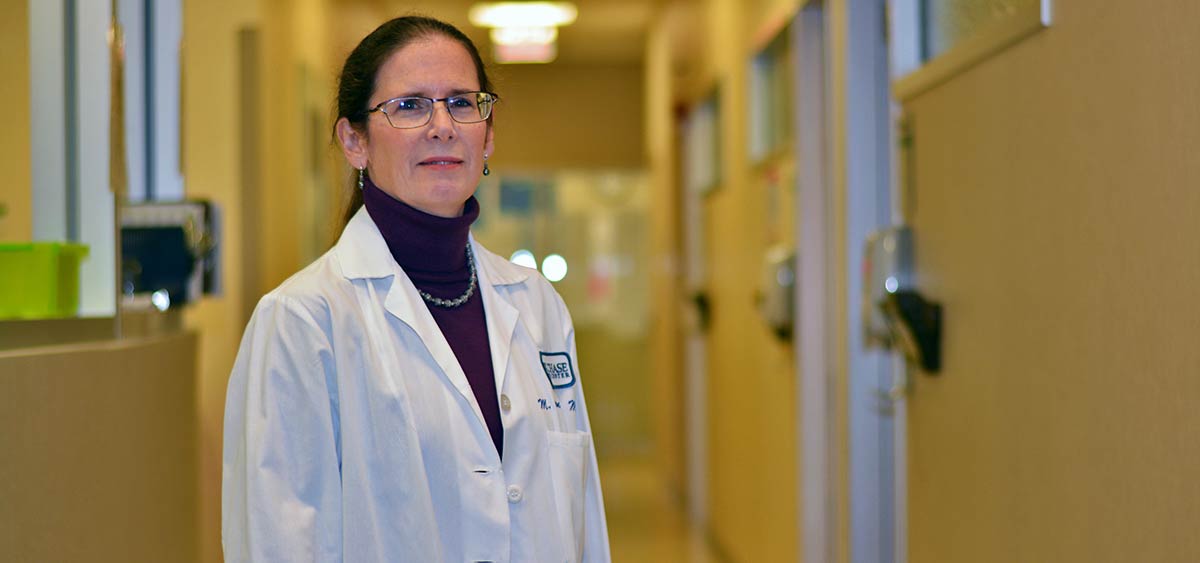
Carving Out a Niche in Medicine and Science
During her time at Fox Chase Cancer Center, Margaret von Mehren, MD, of the Department of Hematology/Oncology, learned the importance of making a place for herself in medicine and science.
The physician director of the Clinical Trials Office, von Mehren originally joined Fox Chase in 1993 for a fellowship in medical oncology. She had obtained an undergraduate degree at Georgetown University and her medical degree at Albany Medical College in New York.
She recalled being excited to begin her career at Fox Chase after attending a seminar series called Toward 2000. One of the speakers there was Lori Goldstein, MD, FASCO, a hematologist/oncologist who is now deputy associate director for clinical research. “I remember being impressed by her and excited to be at an institution where she was,” von Mehren said.
She worked with Goldstein during her training and went on to find another mentor, Lou Weiner, MD, who helped her develop into a successful clinical and translational researcher.
Weiner served as chairman of the medical oncology department and was vice president for translational research at Fox Chase. He is now director of the Georgetown Lombardi Comprehensive Cancer Center in Washington.
“He used to say, ‘You want to be known as the gal who or the guy who ….’” von Mehren said. “So you are creating your identity or your niche where you’re working and getting to be known.”
And getting known in her field is exactly what von Mehren did. In addition to her other roles, she is also an associate director for clinical research and chief of the Division of Sarcoma Medical Oncology.
She began her work in the clinical research labs working on developing new vaccines. Shortly after, she shifted her focus to include sarcoma and translational research, the process of applying knowledge of basic biology and clinical trials to tools and processes for critical medical needs.
“It’s sort of a natural extension to think about the translational research. I think more and more as we understand the basic genetics of specific cancers, we’re developing drugs that we think target those specific mechanisms, so doing translational research makes sense,” said von Mehren. “I feel like I’ve had the benefit of having some experience in the lab and working in a disease where the biology is being worked out oftentimes as we speak.”
She does much of her research with a laboratory-based partner. One of the several forms of cancer she has done research on is GIST, a rare form of cancer that begins in the digestive tract or stomach. Much of that research is a collaboration with Lori Rink, PhD, an assistant professor in the Molecular Therapeutics program.
Through her numerous research initiatives at Fox Chase, von Mehren has ultimately found that working as a team is just as important as carving out your own space in the scientific world.
“I’ve come to appreciate with time that collaborating is a good thing,” said von Mehren. “Working in a rare disease, collaboration is important. When you’re working with others, you’re more likely to get it done quickly, so then you can have results. It also gets you a group of colleagues that you’re working with who are mutually supportive.”